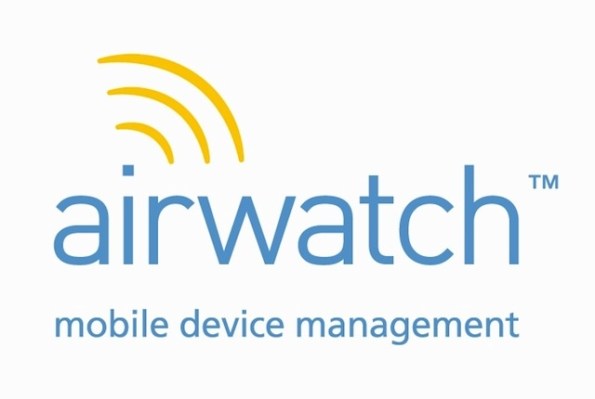AirWatch, the startup that helps businesses manage security and more on employees’ mobile devices, is today announcing that it has raised another $25 million, led by Accel with participation also from Insight Venture Partners. The funds come as part of an expanded Series A round, originally for $200 million, which the company announced with a splash in February during Mobile World Congress. This Series A is the first outside money raised by AirWatch, and values the company at just over $1 billion, according to sources.
Both AirWatch’s CEO, John Marshall, and Ryan Sweeney, the partner who led the round at Accel, tell TechCrunch that this latest expansion of the round was made at the same valuation. It comes just weeks after rival Good Technology raised a $50 million round and is preparing for an IPO.
As with the earlier $200 million, this latest injection will be used to help AirWatch build out its business, add more services, and quite possibly make some acquisitions along the way.
Marshall declined to say what areas acquisitions might be in, other than to note that they would be strategic investments to expand product lines and customers. “I think we will look very carefully at adjacent technology or tuck-in acquisitions,” he told TechCrunch. “I would not want to answer [who they are]. The three companies that I am looking at right now are all doing different things, and I don’t want to tip off our competitors.”
One area where AirWatch sees a particularly bright spot is in what Marshall refers to as “containerization of content,” in which services exist not just to manage whole devices but to be able to make more sophisticated services to partition and control particular services, such as a specific suite of enterprise apps or even one particular area of data. “The largest portion of our business is still in the enterprise mobility management space, including devices as well as apps,” he said. “The growing part of the business is around being able to secure the content in a digital locker. We see a lot of growth in extending that out within our customer base. I can’t emphasize how important this is in our strategy.” It will also lead AirWatch further also into desktop services, supporting not just mobile devices and platforms but the services and PCs used to run things when workers are not running around.
The funding, and AirWatch’s moves to grow, are signs of a consolidation afoot in the area of mobile enterprise services, specifically around mobile device management and the larger “BYOD” trend, where workers are following larger consumer trends using smartphones and tablets to do everything online, and are increasingly bringing in their devices to the office to help them work there, too. Up to now, there have been dozens of companies working in this space, both big (like AirWatch and Good) and small.
“We think this market is going to play out quickly,” said Marshall. “There are haves and have-nots, and we want to be the market leader and continue increasing that separation. Consolidation is absolutely on the cards.”
He also says that will play out not just in terms of services and winning business but also in terms of funding. “The VCs are getting pretty smart and are realizing that the winners are shaping up. That will cut off capital for those players who are not in the leading pack. Some will be acquired, and some will disappear.”
Indeed, Sweeney at Accel agrees on the investing front, but adds that the company is also gearing up to look for more mobile enterprise investments going forward.
“We’re actively looking in mobile enterprise,” he told TechCrunch. “This is the largest investment we’ve made in mobile enterprise to date but [the trend of] folks bringing phones and tablets from home to work and leaving with your PC in your pocket are still growing, so we think mobile enterprise will be a growth area for 3-5 years for sure.”
Marshall says AirWatch is currently adding 500 business per month, which would put its current client base at around 7,500, with some of the bigger names including Delta, Lowe’s; United Airlines; Bureau of Alcohol Tobacco, Firearms and Explosives (ATF); Skanska; PepsiCo; Henry Ford Health System; Mount Sinai Medical Center; Best Buy and Abbott Laboratories. The company boasts four of the top five global Fortune companies; the top four global energy companies; six of the top 10 global airlines; six of the top 10 global pharmaceutical companies; seven of the top 10 global consumer product companies; five of the top 10 global luxury goods companies; two of the top three global hotel groups; nine of the top 10 U.S. retailers and three of the top five U.S. medical device companies.
